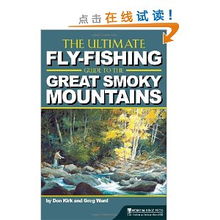Content:
Introduction: Fishing in freshwater fish farms has become an increasingly popular activity for anglers seeking a unique and productive fishing experience. Whether you are a seasoned fisherman or a beginner, mastering the techniques for fishing in a controlled environment like a fish farm can greatly enhance your chances of a successful catch. In this article, we will delve into the essential techniques for fishing in freshwater fish farms, providing you with valuable insights and tips to help you become a proficient angler.
Choose the Right Equipment: Before setting out to fish in a freshwater fish farm, it is crucial to select the appropriate equipment. Here are some key items to consider:
a. Rod and Reel: Opt for a rod and reel combination that suits the type of fish you are targeting. Lighter rods and reels are suitable for smaller fish, while heavier equipment is recommended for larger species.
b. Line: Use a line that matches the size of the fish you are targeting. Monofilament or fluorocarbon line is often preferred due to its strength and low visibility in water.
c. Lures and Baits: Depending on the fish species, choose appropriate lures or baits. Live bait, artificial lures, or a combination of both can be effective.
Understand the Fish Farm Environment: Familiarize yourself with the fish farm environment to improve your chances of success. Here are some key points to consider:
a. Fish Behavior: Study the behavior patterns of the fish species in the farm. This includes their feeding times, preferred habitats, and migration patterns.
b. Water Conditions: Pay attention to water temperature, clarity, and oxygen levels. These factors can significantly impact fish activity and feeding behavior.
c. Farm Layout: Familiarize yourself with the layout of the farm, including the location of fish pens, feeding areas, and potential hiding spots.
Timing is Key: Timing your fishing trips strategically can greatly increase your success rate. Here are some tips:
a. Morning and Evening: Fish are often more active during these times, especially during low-light conditions. Plan your trips accordingly.
b. Feeding Times: Arrive at the farm during feeding times to witness increased fish activity and feeding opportunities.
c. Weather Conditions: Fish are less active during extreme weather conditions. Choose calm, overcast days for better fishing experiences.
Mastering the Art of Casting: Casting is a fundamental skill in fishing. Here are some tips to improve your casting technique:
a. Practice: Spend time practicing your casting technique before heading to the fish farm. This will help you develop consistency and accuracy.
b. Distance and Angle: Aim for a balanced distance and angle when casting. This ensures that your lure or bait reaches the desired location effectively.
c. Retrieve: Adjust your retrieve speed and rhythm based on the fish species and their behavior. Experiment with different retrieves to see what works best.
Using Lures and Baits: Choosing the right lure or bait is crucial for attracting fish. Here are some tips:
a. Lures: Select lures that mimic the natural prey of the fish species in the farm. Vibrating, fluttering, or spinning lures can be effective.

b. Baits: Live bait, such as worms, minnows, or insects, can be highly attractive to fish. Ensure the bait is fresh and in good condition.
c. Presentation: Pay attention to how you present your lure or bait. A natural and realistic presentation can increase your chances of triggering a bite.
Patience and Persistence: Fishing in freshwater fish farms requires patience and persistence. Here are some tips to help you stay focused:
a. Stay Calm: Maintain a calm and relaxed demeanor to avoid spooking the fish.
b. Be Observant: Pay attention to the water's surface, as fish often feed near the surface. Look for signs of activity, such as splashes or boils.
c. Adapt: Be willing to adjust your techniques based on the fish's response. If one method is not working, try a different approach.
Conclusion: Fishing in freshwater fish farms can be a rewarding and enjoyable experience. By understanding the fish farm environment, selecting the right equipment, mastering casting techniques, and using effective lures and baits, you can enhance your chances of a successful catch. Remember to practice patience and persistence, and you will soon become a proficient angler in this unique fishing environment. Happy fishing!












